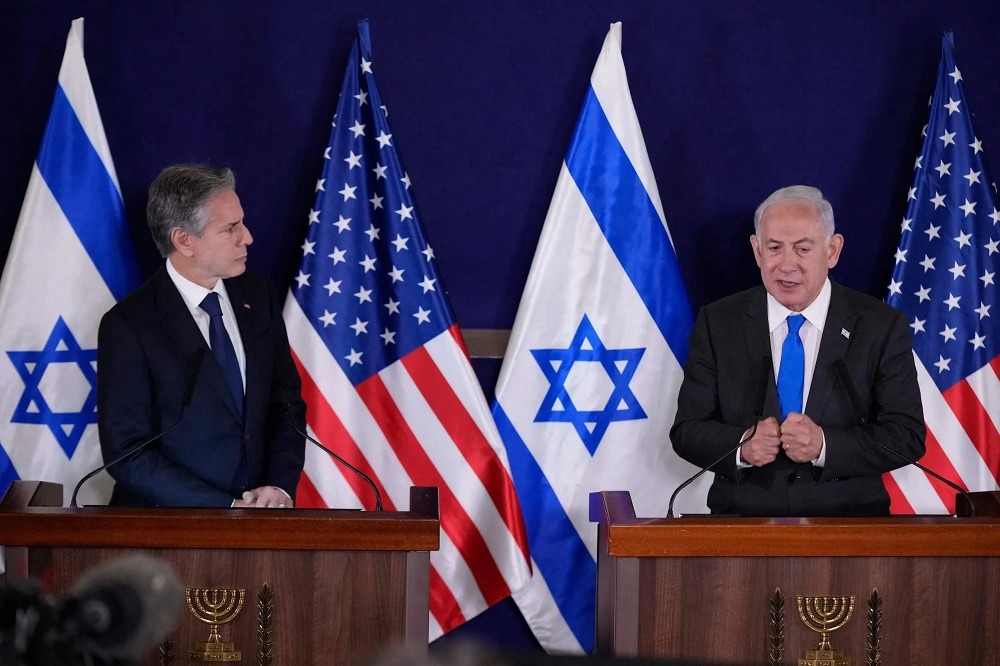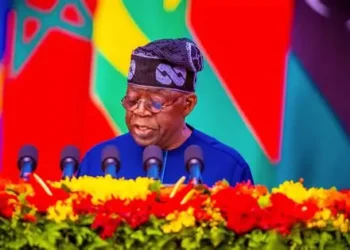The United States and Israel share a deep and multifaceted relationship, characterized by mutual values, strategic interests, and a complex historical The United States and Israel share a deep and multifaceted relationship, characterized by mutual values, strategic interests, and a complex historical backdrop. This enduring alliance has navigated numerous challenges, from regional conflicts to policy disagreements over Palestinian statehood. As tensions escalate between Israel, Iran, Hezbollah, Hamas, and the US, it is vital to comprehend the nuances of this intricate relationship.
Diplomatic Ties
The foundation of the US-Israel diplomatic relationship rests on three main pillars:
- Shared Values: Both nations champion democracy, uphold Western ideals, and engage in counter-terrorism efforts.
- Strategic Interests: Stability in the Middle East, security cooperation, and energy security are mutual priorities.
- Historical Ties: The legacy of the Holocaust, Cold War alliances, and immigration/diaspora connections strengthen their bond.
Key Diplomatic Milestones
- 1948: US Recognition of Israel’s Independence
- The US was among the first nations to recognize Israel as an independent state, solidifying a foundational diplomatic bond.
- 1962: Strategic Partnership Established
- The US and Israel formalized a strategic partnership, enhancing military and intelligence cooperation.
- 1978: Camp David Accords
- The US facilitated a peace treaty between Israel and Egypt, marking a significant diplomatic achievement in the region.
- 1993: Oslo Accords
- The US played a crucial role in the Israeli-Palestinian peace talks, aiming to resolve long-standing conflicts.
Economic Ties
The economic relationship between the US and Israel is robust, marked by substantial trade, investment, and aid.
- Trade: Bilateral trade between the US and Israel reached $47.0 billion in 2019. Israeli exports to the US comprised $26.9 billion, and US exports to Israel were $20.2 billion. Key traded goods include pharmaceuticals, technology, and raw minerals.
- Investment: US companies are major investors in Israel’s thriving tech sector.
- Aid: The US provides approximately $3.8 billion in military aid and $50 million in economic aid annually.
Key Economic Sectors
- Technology: The collaboration in cybersecurity, software development, and innovation is a cornerstone of US-Israel economic ties.
- Defense: Joint development of missile defense systems, such as the Iron Dome, highlights the defense partnership.
- Energy: Cooperation on natural gas exploration and export underscores the strategic economic alliance.
Current Conflicts: Israel, Iran, Hezbollah, Hamas, and US Involvement
The Middle East is fraught with tensions that directly impact the US-Israel relationship:
- Iran-Israel Conflict: Concerns over Iran’s nuclear program and ballistic missile development have united the US and Israel in opposition.
- Hezbollah-Israel Conflict: Hezbollah’s military buildup in Lebanon and Syria poses significant threats to Israeli security.
- Hamas-Israel Conflict: Hamas’s control of Gaza and frequent rocket attacks on Israel perpetuate ongoing hostilities.
- US Involvement:
- Withdrawal from the Iran Nuclear Deal (JCPOA) and re-imposition of sanctions on Iran.
- Recognition of Jerusalem as Israel’s capital.
- Continued provision of military aid to Israel.
Insights and Analysis
- US-Israel Cooperation: The nations collaborate extensively on counter-terrorism, intelligence sharing, and military operations.
- Iran’s Regional Ambitions: Iran’s influence through proxies like Hezbollah and Hamas aims to destabilize the region.
- Hezbollah’s Military Buildup: The group’s arsenal and presence in Lebanon and Syria threaten Israeli security.
- Hamas’s Rocket Attacks: Persistent attacks from Gaza lead to repeated escalations and conflicts.
Challenges and Controversies
Despite the strong alliance, several contentious issues persist:
- Palestinian-Israeli Conflict: Disagreements over settlements, borders, and the prospect of Palestinian statehood remain unresolved.
- Iran Nuclear Deal: The US and Israel differ on approaches to Iran’s nuclear ambitions, particularly after the US withdrew from the JCPOA.
- Settlement Expansion: US criticism of Israeli settlement expansion in the West Bank highlights ongoing policy disagreements.
Modern U.S.-Israel Relations
In recent years, the US-Israel relationship has grown more complex. Critics within the United States argue that America’s defense aid to Israel contradicts its goals for Israel-Palestine, as U.S. weapons may be used against Palestinians. Despite this, military cooperation, particularly in cyberwarfare, information, and technology, has deepened. Israel’s democracy has faced challenges, with Prime Minister Benjamin Netanyahu’s government adopting increasingly conservative views, leading to a weakening of the judiciary, reduced human rights, and restricted freedom of speech. Recent spikes in Israeli-Palestinian violence have heightened regional unrest. Consequently, recent meetings between U.S. officials like Secretary of State Blinken and President Biden and Israel have centered on democracy promotion and regional de-escalation, reflecting strains in the U.S.-Israeli relationship.
In a controversial foreign policy move in 2018, the United States, under the Trump administration, relocated its embassy from Tel-Aviv to Jerusalem and officially recognized Jerusalem as the capital of Israel. This decision sparked controversy as the international community considers East Jerusalem as occupied territory, and Palestinians aspire to have it as their capital. Critics argue that recognizing Jerusalem as Israel’s capital undermines peace processes, while proponents contend that it supports Israel’s claim to Jerusalem as its capital.
Conclusion
The US-Israel relationship is a resilient partnership characterized by deep diplomatic, economic, and strategic ties. As Middle East tensions escalate, understanding the complexities of this alliance is essential for fostering regional stability and security.
Sources:
- US Department of State
- Israeli Ministry of Foreign Affairs
- Congressional Research Service
- US-Israel Business Alliance
- Middle East Institute
Recommended Reading:
- The Israel Lobby and U.S. Foreign Policy by John J. Mearsheimer and Stephen M. Walt
- The Unbreakable Bond: Between the United States and Israel by Rabbi Abraham Cooper and Harold Brackman
- U.S.-Israel Relations: A Special Alliance by the Council on Foreign Relations
Join the Conversation:
Share your thoughts on the US-Israel relationship and its implications for regional stability. How can differences be addressed? What role should the US play in Middle East conflicts?






